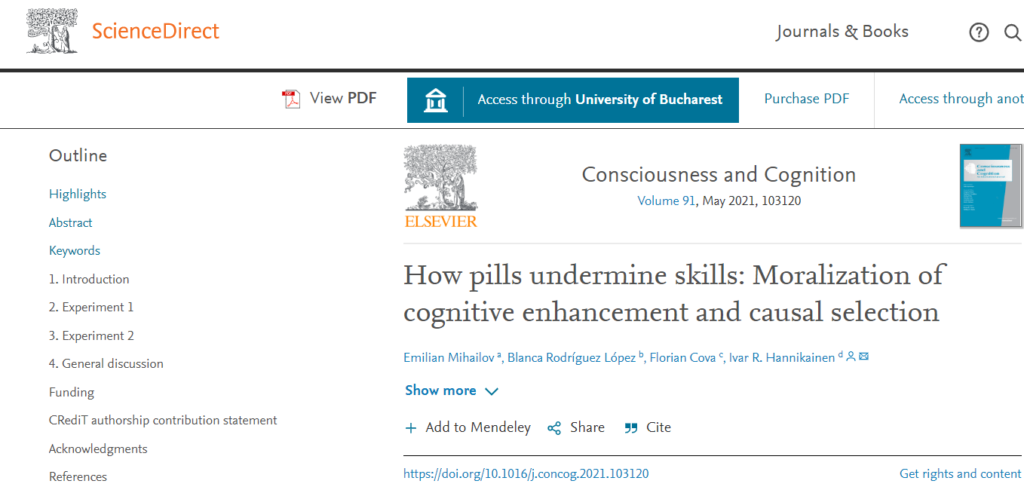Moralization of cognitive enhancement and causal selection
Despite the promise to boost human potential and wellbeing, enhancement drugs face recurring ethical scrutiny. The present studies examined attitudes toward cognitive enhancement in order to learn more about these ethical concerns, who has them, and the circumstances in which they arise. Fairness-based concerns underlay opposition to competitive use—even though enhancement drugs were described as legal, accessible and affordable. Moral values also influenced how subsequent rewards were causally explained: Opposition to competitive use reduced the causal contribution of the enhanced winner’s skill, particularly among fairness-minded individuals.
In a follow-up study, we asked: Would the normalization of enhancement practices alleviate concerns about their unfairness? Indeed, proliferation of competitive cognitive enhancement eradicated fairness-based concerns, and boosted the perceived causal role of the winner’s skill. In contrast, purity-based concerns emerged in both recreational and competitive contexts, and were not assuaged by normalization.


